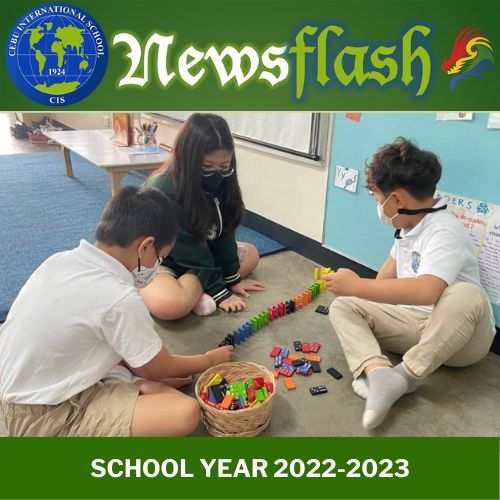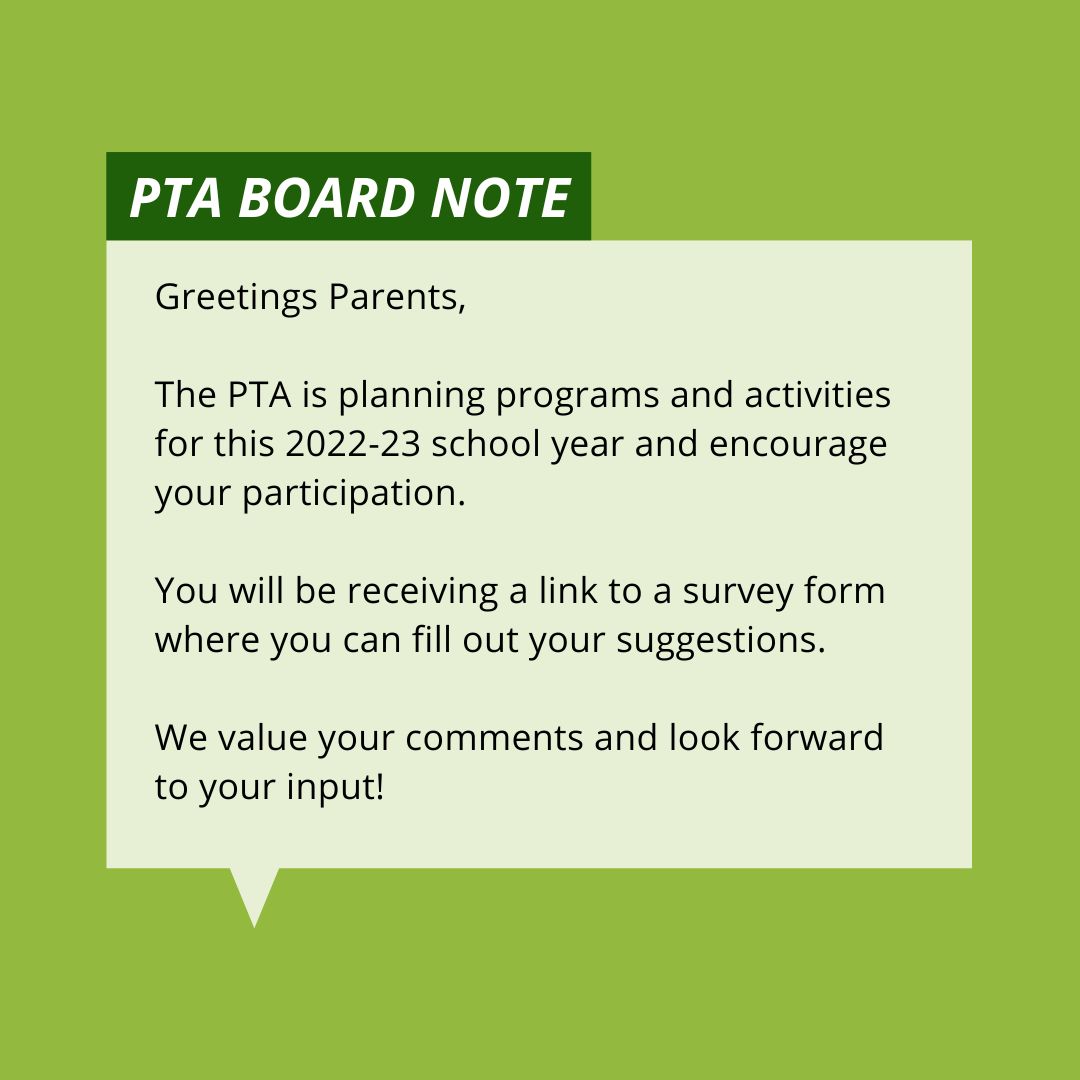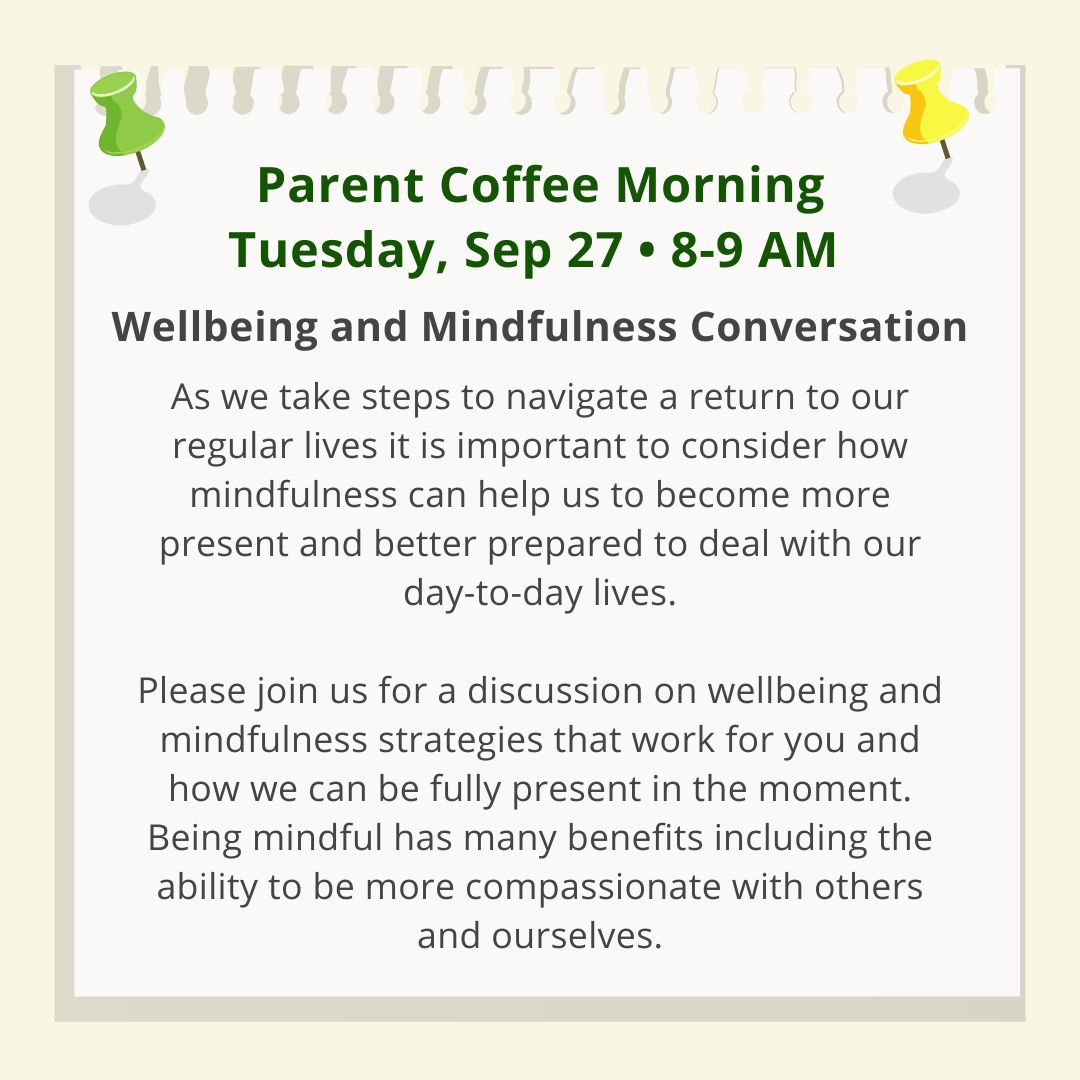
Principal’s Corner
by Mr. Andrew Powell, EY-12 Principal
A feature of the International Baccalaureate programmes is the importance placed on making connections between ideas and concepts across different disciplines. There is also a strong emphasis on taking the knowledge and skills that students have learned and used in one discipline and connecting it to learning in other subject areas.
Over the past fortnight our teachers have been working to examine and plan ways in which learning may be integrated to best effect. At a whole school level, we have focused on furthering our commitment to digital citizenship and how to meaningfully integrate and articulate aspects of these standards across the school. This has included emphasizing specific and relevant ATL 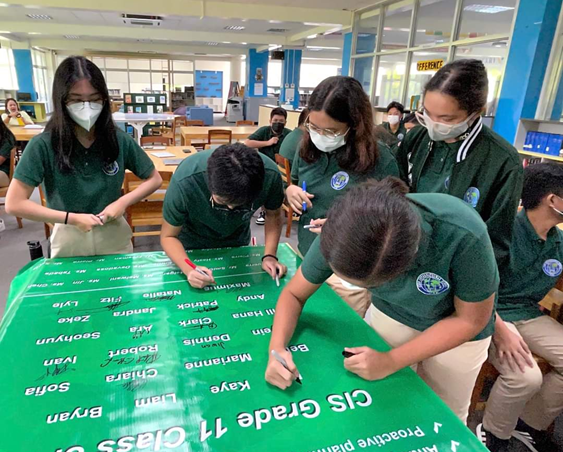 skills while reflecting upon how this approach supports Learner Profile attributes and the five respects that we are committed to as a school.
skills while reflecting upon how this approach supports Learner Profile attributes and the five respects that we are committed to as a school.
At a divisional level our teachers have used collaborative planning time to make intentional connections across subject areas to enhance learning. This is an integral practice in the PYP where a transdisciplinary approach creates a cohesive curriculum in which students collaborate to solve multifaceted problems. At the MYP level our teachers have started to prepare Interdisciplinary Units which aim to bring together concepts, methods and forms of communication from two or more disciplines to solve a problem or create a product. These approaches are utilized in the DP core where subject areas are linked to students’ engagement with the Extended Essay and Theory of Knowledge classes. Here students are encouraged to consider the role one area of knowledge plays in producing or validating other knowledge.
Integrating an interdisciplinary approach into the classroom benefits students in a number of ways:
- It helps learners to make more natural connections between different areas of knowledge to understand the world around them and this is something that we want to encourage at all levels of the school.
- It also promotes creativity and young learners often make unique connections between different areas of knowledge, which in turn provide a greater connection to real world contexts.
- Students become better collaborators and communicators as they work in groups, articulate their thoughts and work together to solve problems.
- Interdisciplinary learning promotes mental flexibility and encourages students to understand different perspectives and different ways of learning.
- Introducing and utilizing ATL skills throughout the schools provides students with a toolbox of approaches to learning that they may use. It also helps them to become stronger, more regulated learners.
- This approach also deepens the impact of the learning. Through their experiences students may create new knowledge, something that could not be achieved by looking at a problem or an idea from only one frame of disciplinary reference.
In order to successfully navigate the complexities of an ever-changing world it is important that we develop knowledgeable graduates who are able to process and synthesize information in a critical manner in order to understand complex issues and ideas. We believe that our pedagogical approach stands our students in good stead for this to take place.
Upcoming events of note
-
Sept. 27: Parent Coffee Meeting, 8-9 am (CIS Annex) ← Please take the time to come, we have a session about wellbeing from Mr. Powell, followed by a discussion led by the PTA Board (particular focus, our upcoming International Day)
-
Sept. 30: End of 1st quarter
-
Oct. 3-7: Mid-semester break
-
Oct. 22: International day
-
Oct. 24-28: Book Week (Book Parade 28)
-
Oct. 31-Nov. 2: School and Public holiday
Please refer to the CIS Event Calendar (http://cis.edu.ph/school-
Kinder/Grade 1 Class
by Ms. Tara Alagao, KG/G1 Teacher
Be Kind
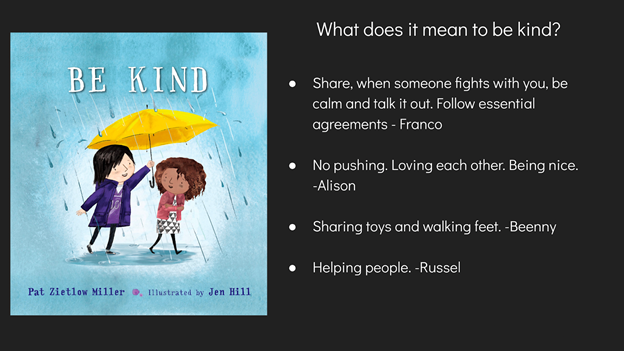
“You just need someone who has a warm heart to cheer you up.”
As we started wrapping up our first unit on Who We Are, one of our Kinder and Grade 1 students shared this after we had our reading time. For the past five weeks, our Kinder and Grade 1 students inquired into the way people live and interact with others and how it influences their personal well-being. Throughout the unit, we read a variety of books that helped our learners understand what social and emotional well-being means, identified the social circles that we are connected to and how these people affect our well-being. One of the books that we read was “Be Kind” and after reading, the students shared connections they made from the story. Some of the students shared ideas on what we can do in our learning community to remind us to always be kind.
An action that the Kinder and Grade 1 students suggested is to write notes when someone is being kind or when you did something kind. This prompted us to share the book “How Full Is Your Bucket” and right after we shared the story, students eagerly started writing down notes when they noticed someone is being kind to them or when they did something kind to others. We then decided to hang it up in our Bucket Tree for everyone to see as we continue to build and grow our kind and caring learning community.
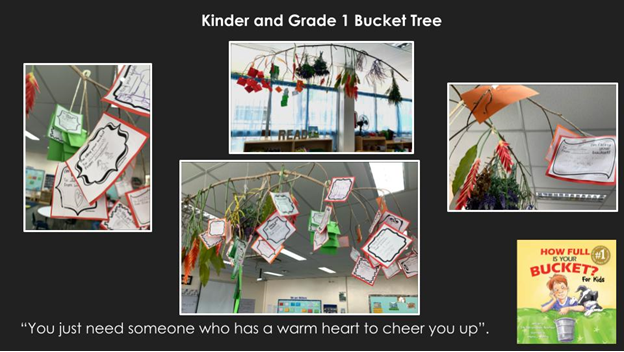
DP Psychology
by Ms. Leanne Healy, DP Psychology Teacher
The grade 12 psychology students have recently been studying post 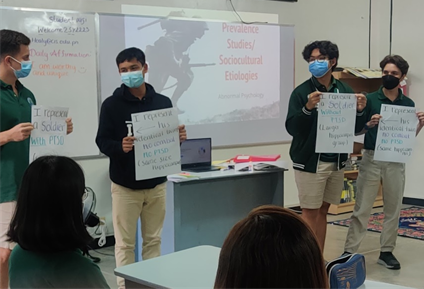 traumatic stress disorder (PTSD) under their abnormal psychology unit. PTSD is classified as an anxiety disorder, and the students of grade 12 psychology have engaged in academic journals to discuss its causes and treatment. Here students represent the different participants in Gilbertson et al. (2002), one of their key studies. The students photographed have the task of explaining the experimental method to their peers, as the design is complex, giving space to students to act out the study and its moving parts. The students who were not presenting asked questions about the design to test the ‘actors’ knowledge in this way all students engaged with and learned more about the study.
traumatic stress disorder (PTSD) under their abnormal psychology unit. PTSD is classified as an anxiety disorder, and the students of grade 12 psychology have engaged in academic journals to discuss its causes and treatment. Here students represent the different participants in Gilbertson et al. (2002), one of their key studies. The students photographed have the task of explaining the experimental method to their peers, as the design is complex, giving space to students to act out the study and its moving parts. The students who were not presenting asked questions about the design to test the ‘actors’ knowledge in this way all students engaged with and learned more about the study.
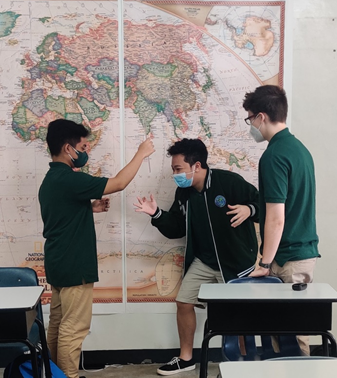 Grade 11 psychology students have recently been studying experimental research methods. Here students are testing their reflexes in an independent measures design to determine if the season they were born effects their hand-eye coordination. During this experiment the students had to measure the readiness of their reflexes by the distance in centimeter it took before catching the ruler. These practise experiments are important for developing student understanding of experimental research as they prepare for their psychology IA where they complete their own experiment.
Grade 11 psychology students have recently been studying experimental research methods. Here students are testing their reflexes in an independent measures design to determine if the season they were born effects their hand-eye coordination. During this experiment the students had to measure the readiness of their reflexes by the distance in centimeter it took before catching the ruler. These practise experiments are important for developing student understanding of experimental research as they prepare for their psychology IA where they complete their own experiment.
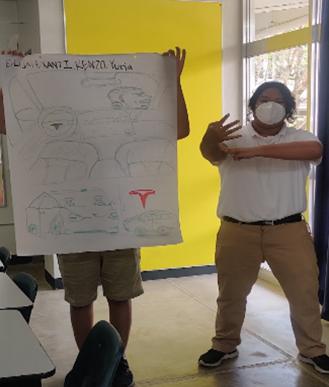 Grade 10 students studying individuals and societies have had a focus on marketing in their business unit. The students have the task of marketing Tesla’s new safety feature. Imagination was prevalent here. The grade 10 students present their ideas for new features. In the first photo students have created a feature where you must successfully complete a rap before the car will start. The ability to complete the rap is a test of attention and alertness. This is a safety feature which is marketed towards young car drivers as it appeals to their interests.
Grade 10 students studying individuals and societies have had a focus on marketing in their business unit. The students have the task of marketing Tesla’s new safety feature. Imagination was prevalent here. The grade 10 students present their ideas for new features. In the first photo students have created a feature where you must successfully complete a rap before the car will start. The ability to complete the rap is a test of attention and alertness. This is a safety feature which is marketed towards young car drivers as it appeals to their interests.
Grade 7: Individuals and Societies
by Ms. Joy Pierra, I&S Teacher
The Individuals and Societies 7 class has been learning about U1: How Does Democracy Work? First, the students started exploring the topic by defining democracy. Here are their definitions.
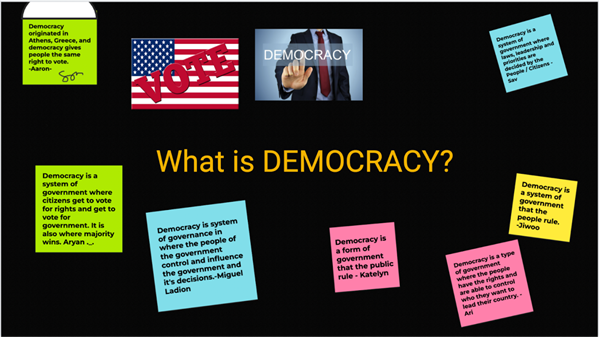
Then, students traced the evolution of the concept of democracy throughout history. They described how democracy worked in the early days and compared it with contemporary times. They also identified various events that led to the development of democracy, such as the Magna Carta of 1912, the US Constitution in 1787, the French Revolution in 1789-1799, the Declaration of Women’s Rights in 1791, the Great Reform in 1832-1837, New Zealand Women’s Rights in 1893, the Civil Rights Movement in 1954-1965, and the Fall of the Berlin Wall in 1989.
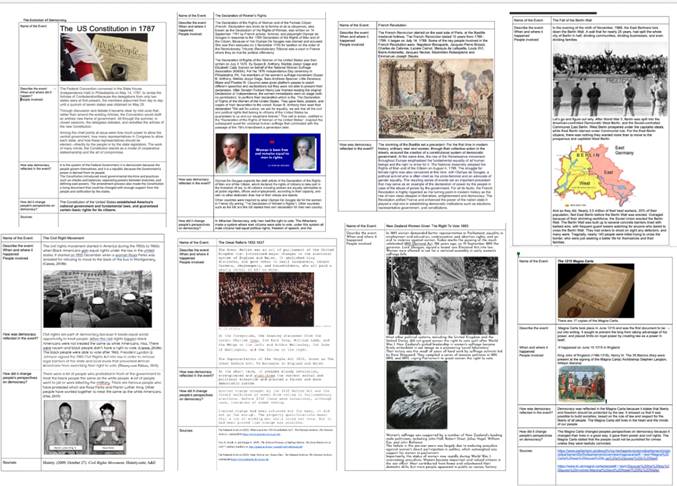
Afterwards, they delved deeper into the five categories used by the Economic Intelligence Unit (EIU) to evaluate the state of democracy around the world. The five categories are the electoral process and pluralism, civil liberties, the functioning of government, political participation, and political culture. The students applied their understanding of the categories in their summative task by creating an infographic depicting the state of democracy in a Southeast Asian country. Here are some examples of their work.
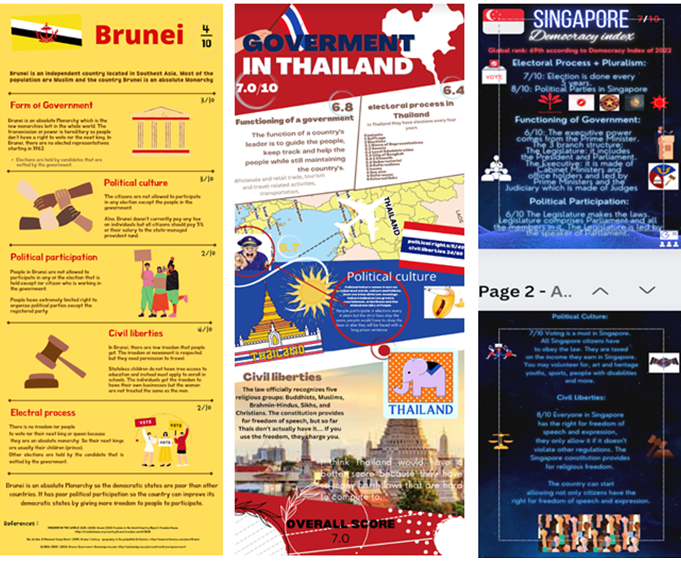
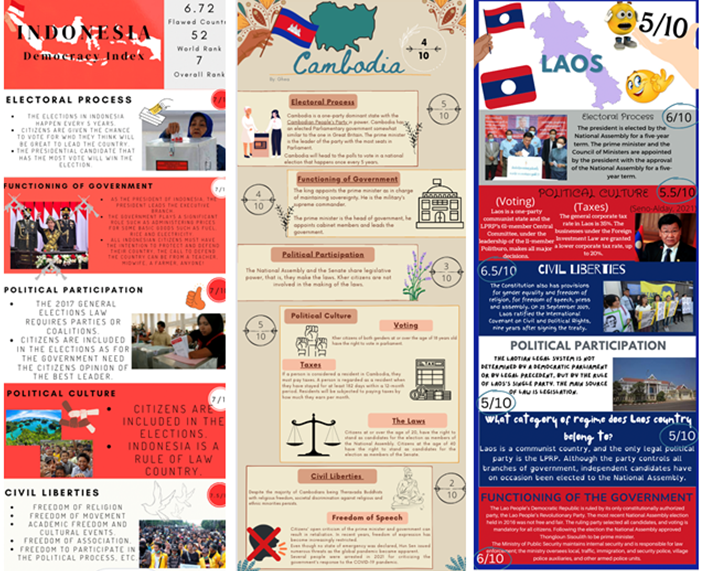
Finally, the students discussed their impressions of the system based on the summative task that they had completed. They responded to the question, “Is democracy a FAIR form of government?”
Jiwoo
Joseph
Aryan
Sav
Ghea
Miggy
Arianna
Tubô Art Fair
We’d like to recognise G11 student Marianne G. who has had her artwork showcased at the recent Tubô Art Fair. Marianne’s work was displayed prominently and drew a lot of attention from visitors.
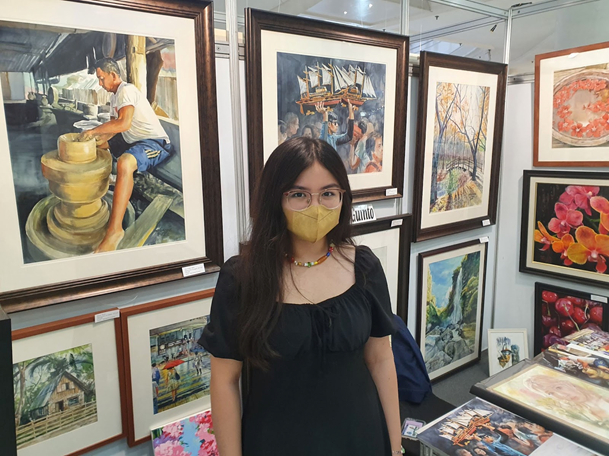 “I really enjoyed the experience because I was able to share my art with the public. Due to COVID I haven’t been able to do so and I missed that connection. I appreciated the support I received from the community at CIS and the way in which people admired and spoke about my work. I was proud of my exhibition and can see the way in which I have grown as an artist over the past couple of years. I’m looking forward to continuing to paint and I can see the influence of taking art at CIS as it has helped me think more deeply about my work and its meaning.”
“I really enjoyed the experience because I was able to share my art with the public. Due to COVID I haven’t been able to do so and I missed that connection. I appreciated the support I received from the community at CIS and the way in which people admired and spoke about my work. I was proud of my exhibition and can see the way in which I have grown as an artist over the past couple of years. I’m looking forward to continuing to paint and I can see the influence of taking art at CIS as it has helped me think more deeply about my work and its meaning.”
Marianne joined CIS in Grade 9 and has distinguished herself academically and through her creativity. We look forward to Marianne continuing to develop her skills and techniques over the coming year and can’t wait for her to showcase more of her work.
Dragon’s Print

If you didn’t know, National Ice Cream Cone Day was yesterday, and what better way to celebrate it than finding out what type of ice cream cone (or cup!) you are? With our short quiz, you are sure to have fun and hopefully get your cone or cup of choice!
Find the quiz on http://dragonsprint.cis.
College/Careers Counselor Corner
by Ms. Jenny Basa, College/Careers Counselor Corner
CIS Centennial Throwback
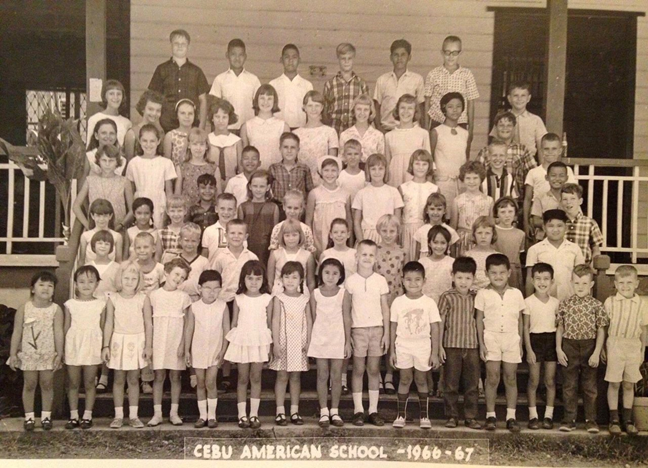
College Events (Virtual and Face to Face)
DATE
September 24
Saturday
Grand Ballroom,
Marco Polo Hotel
12:00 – 5:00PM
EVENT
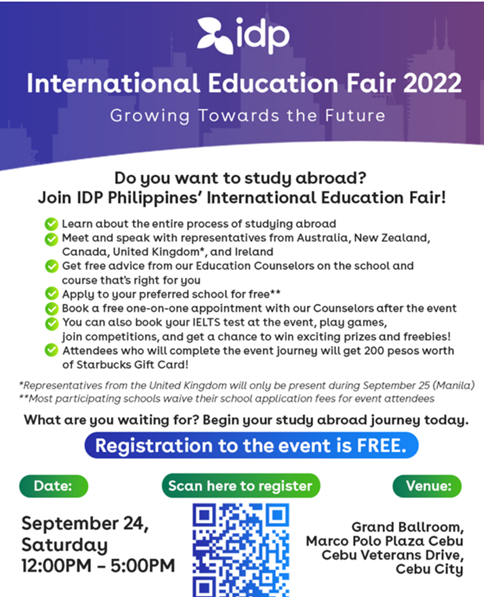
Participating institutions:
Australian Catholic University
Edith Cowan University
Federation University Australia
Griffith University
Southern Cross University
Swinburne Institute Of Technology
Tafe New South Wales
Tafe South Australia
The University Of Notre Dame Australia
University Of Wollongong
University Technology Sydney
Western Sydney Australia
The University Of Auckland
September 28
4:00 PM
UK time
Link to register
University for the Creative Arts (UK) – Portfolio Advice Webinar: Join Jamie Dobson, a professor who can give you advice on your art portfolio.
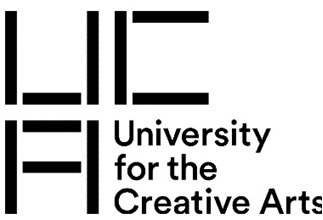
Sept 28, 29
Oct 5 and 19
(All schedules are US Eastern Time – if you register, you will have access to recordings on their website)
University of Virginia Virtual Fall Event Series
Wednesday, September 28th (6-7PM): First-Year Admission Process
High school applicants, come learn about the admission process from admission deans. Submit your questions ahead of time on the registration form! Register here!
Thursday, September 29th (6-7PM): Common App 101
Learn how to navigate the Common Application, including the UVA supplement. We will talk through frequently asked questions and offer tips and tricks for completing your application to UVA! Register here!
Wednesday, October 5th (6-7PM): Financial Aid at UVA
Learn about the financial aid process, including different types of financial aid and how to apply, directly from the Office of Student Financial Services. Register here!
Wednesday, October 19th (6-7PM): Hoos Talking Diversity at UVA
This event will give you a chance to learn about the academic and cultural opportunities available at UVA from current diverse voices on Grounds. Learn about how student advocacy has shaped the University’s community that we see today. Register here!

September 27
Tuesday
9:15 – 10:00am
Venue: Canteen Annex
Link to sign up
York College Pennsylvania (USA) – In-person info session with the college rep with Q&A.
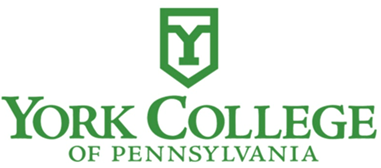
October 1 Saturday
10:00AM
October 7 Friday
7:00 PM
Pacific time
Link to register
University of Southern California (USA): Discover USC – You will hear from members of the USC Office of Admission, as well as current USC students who will share their experiences and advice on how to navigate the admission process in the upcoming year.

October 4
Tuesday
Venue: Radisson Blu Hotel, Niña Room
6:00PM
Link to register
New York University – Abu Dhabi – In-person info session with the NYUAD rep. Since this is during the quarter break, the venue & time will be confirmed later next month.
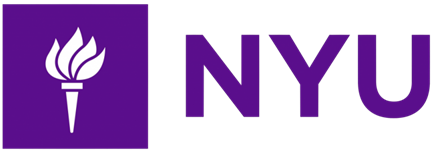
October 11
Tuesday
9:15 – 10:00 AM
Canteen Annex
Link to sign up
Hawaii Pacific University (USA) – Info session with the university rep with Q&A.
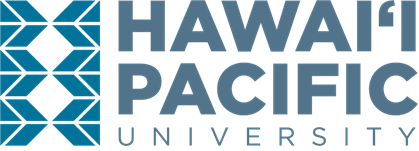
October 21
Friday
9:15 – 10:00 AM
Canteen Annex
University of British Columbia (Canada) – Info session with the university rep with Q&A.

SAT Update
2022–23 School Year Test Dates
| SAT Test Date | Deadline for Registration, Changes and Regular Cancellation |
| October 1, 2022 | September 2, 2022 |
| December 3, 2022 | November 3, 2022 |
| March 11, 2023 (Digital) | February 24, 2023 |
| May 6, 2023 (Digital) | April 21, 2023 |
| June 3, 2023 (Digital) | May 19, 2023 |
Test dates labeled Digital means that students will bring a device to the test center and take the exam using their device. The College Board may provide devices for test-takers who do not have access to a device. All test-takers for Digital SATs are still required to report physically to the test center to take the test.
To register for the SAT, you may click on this link. If you need assistance or have any questions, please feel free to email Ms. Jenny Basa at jbasa@cis.edu.ph.



